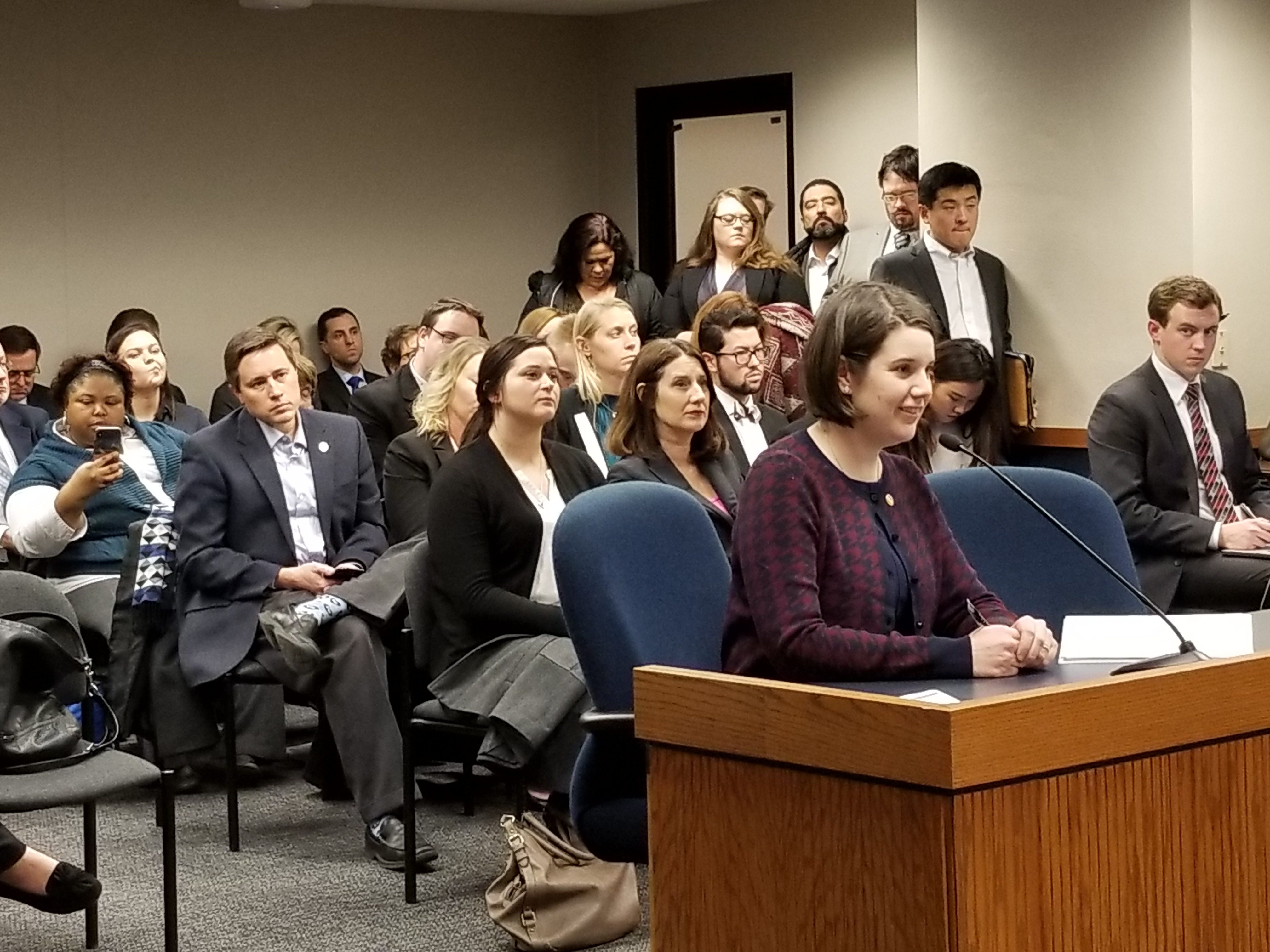A bill meant to make it easier for sex trafficking victims to avoid being prosecuted for prostitution is advancing through the Missouri House.

Missouri law makes it an affirmative defense for a minor charged with prostitution to have been acting under coercion at the time of the crime. Under House Bill 397 it would be an affirmative defense that the defendant was under the age of 18. It would also allow a person guilty of prostitution while a minor to apply to the courts to have records of that crime expunged.
“Right now not all of our laws treat victims as victims,” Jessica Seitz with Missouri Kids First told the House Committee on General Laws. “This, right now, is essentially a loophole where a young person can be charged with prostitution when they’re a victim of trafficking, and this can be even more traumatic. Arrest and prosecution can further traumatize a victim which prevents victims from seeking assistance.”
The bill is sponsored by freshman state lawmaker Mary Elizabeth Coleman (R-Arnold).
Coleman told the committee it can be difficult for minors to prove coercion because trafficking victims have often been forced to abuse drugs.
The bill would also add some offenses related to child abuse and sex trafficking to the state law’s definition of “pattern of criminal gang activity.” Advocates say the frequency of trafficking operations being conducted by gangs has increased in recent years.
Office of Child Advocate Director Kelly Schultz spoke in support of that provision. She told the committee about the handling of a case when a child in the state’s foster system was found to have been trafficked.
Schultz stressed to lawmakers that in a 2013 nationwide raid by the FBI, about 60-percent of the children recovered were involved in the child welfare system and many had open foster care cases.
The committee voted unanimously to advance the bill. It is scheduled to be considered Monday by another committee, and then it could go before the full House for debate.